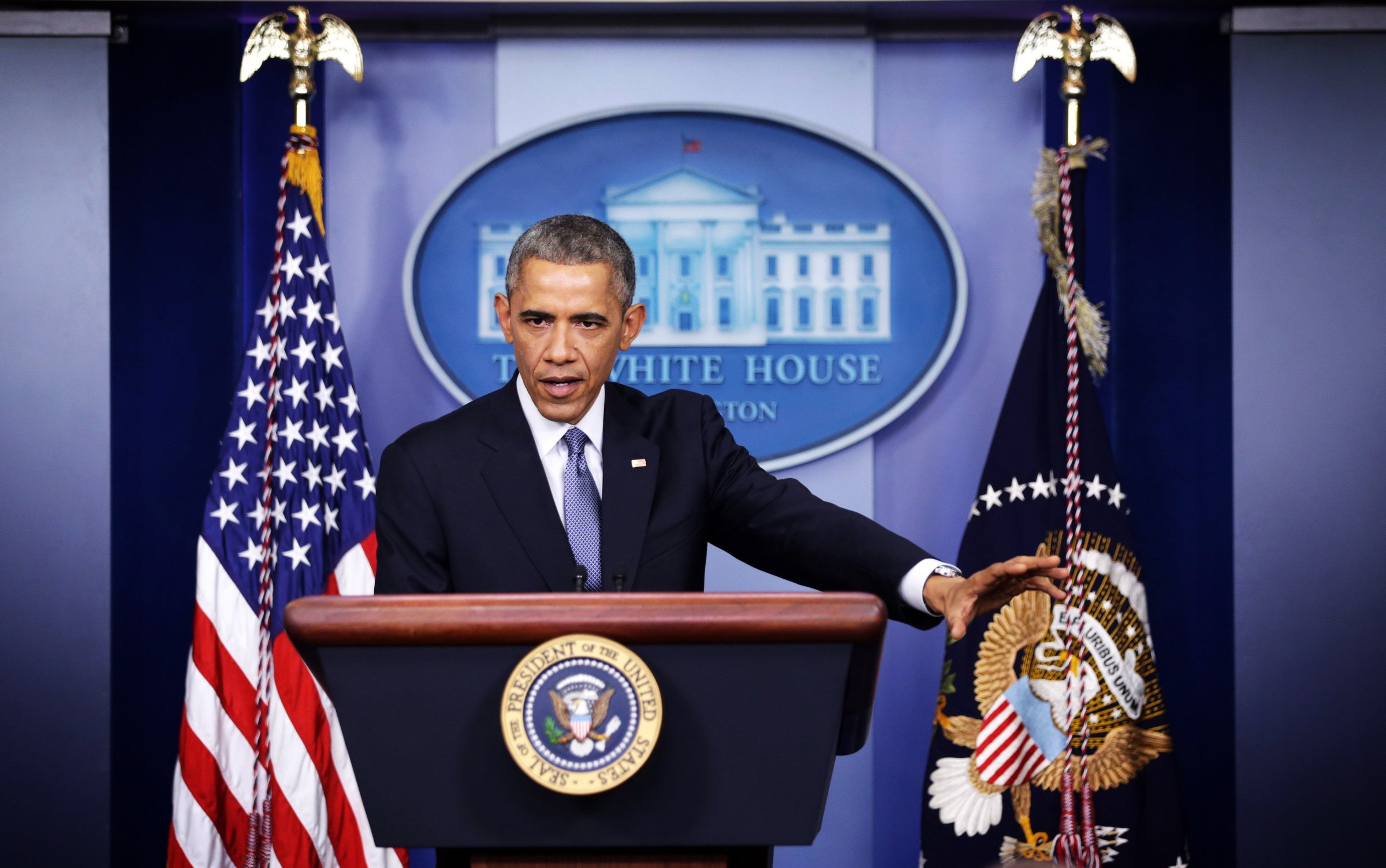
Another round of talks, another round of smiles Friday, as negotiators for Cuba and the United States joined in stepping carefully around the first obvious obstacle to emerge in their joint effort to re-establish diplomatic relations.
The latest meeting was only their second, this time in Washington. Diplomats from both countries crowded around an array of tables at the State Department for what U.S. officials cautioned in advance would be a more “workmanlike” session, less dramatic than the historic inaugural session in Havana in January. That was the first since Presidents Obama and Raúl Castro surprised the world by announcing an intention to reconcile in parallel announcements Dec. 17.
At the time, Obama signaled what sounded very much like an inclination to remove Cuba from the short, brutish roll of nations the State Department lists as official sponsors of terror: The only other countries saddled with the designation are Iran, Syria and Sudan. “At a time when we are focused on threats from Al Qaeda to ISIL, a nation that meets our conditions and renounces the use of terrorism should not face this sanction,” Obama said. But actually removing a nation from the list, and freeing it from the attendant sanctions, turns out to be taking longer than expected. “On why it’s taking so long, I’ve got to tell you it’s just these processes tend to be a little bit more complicated than they seem, and that’s all I’m going to say,” a senior State Department official said in a telephone briefing with reporters on Wednesday.
The consequences of the delay may only be atmospheric, but mood has been one of the things the Obama administration has had going for it on this story. The head of the Cuban delegation, Josefina Vidal, said at the close of Friday’s session that removal from the list was not a strict precondition to resuming ties, but repeated that it is “a very important issue” to Havana, which has harped on it both publicly and privately. And privately,the terror list may indeed have been mentioned as a precondition to re-opening embassies: “It would be very easy to restore diplomatic relations,” the State Department official said in the background briefing with reporters, “if they would not link those two things.”
What’s more, a 45-day interval built into the assessment process means that Cuba will still carry the designation when Castro and Obama meet at the Summit of the Americas, set for the second week of April in Panama City. The confab was envisioned as a celebratory session that marked the end not only of the 50-year cold war between countries, but also of Washington’s estrangement from a Latin American establishment that largely esteems Havana.
The delay clearly pleases Congressional critics of the reconciliation, led by favorites of the Cuban exile community based in Miami. “President Obama and his negotiating team need to stop looking so desperate to secure a deal with the Castro regime to open an embassy in Havana, at any cost, before this April’s Summit of the Americas,” Republican Sen. Marco Rubio of Florida, who also noted the arrest of 200 dissidents in Cuba the previous two weeks. Detentions of activists, often held only a short time, remains routine in Havana, the State Department has noted, and U.S. officials take pains to pay respectful visits to some of the island’s most prominent dissidents.
But on the narrow question of re-establishing diplomatic ties, the nominal point of the talks, both sides appear to be on the same page. “On the issue of the themes on the agenda that were of concern to us, I think we did make progress on a number of them,” said Assistant Secretary of State Robert Jacobson after the meeting. “Some of them, quite honestly, are close to resolution.” Vidal said much the same in a separate news conference. And the negotiators, at least, appeared intent on sustaining the gestures of good will that began in December with an exchange of prisoners, and is supposed to proceed to an exchange of ambassadors. Said Jacobson, in answer to question: “I do think we can get this done in time for the Summit of the Americas.”
More Must-Reads from TIME
- Cybersecurity Experts Are Sounding the Alarm on DOGE
- Meet the 2025 Women of the Year
- The Harsh Truth About Disability Inclusion
- Why Do More Young Adults Have Cancer?
- Colman Domingo Leads With Radical Love
- How to Get Better at Doing Things Alone
- Michelle Zauner Stares Down the Darkness
Contact us at letters@time.com